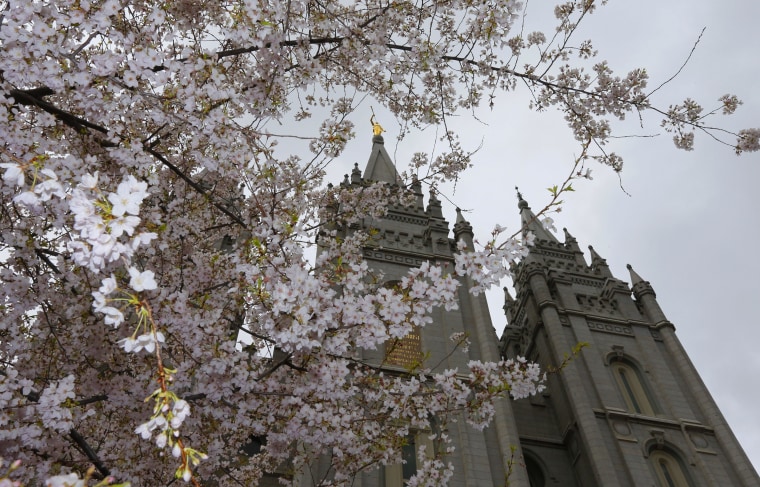A tiny fraction of the 54 million Latinos in the U.S. are in Utah, yet U.S. Hispanic Chamber of Commerce President and CEO Javier Palomarez said the state is the perfect place for the Latino business group to hold its annual convention this week.
"We are going into places we have been thought to not heretofore have existed,” said Palomarez, who said his organization has previously taken the conference to cities like Dallas, Chicago, Los Angeles and Miami, which he described as hotbeds for the Hispanic community and enterprises.
Utah is representative of how the Latino population has spread in recent decades. While just .7 percent of all U.S. Latinos live in Utah, they make up about 13 percent of the state’s population of 2.9 million. In 2010, the state had the 12th largest Hispanic population share, according to Pew Research Center’s Hispanic Trends Project.
The purchasing power of the state’s Latinos totaled $6.4 billion, according to an almanac for the state produced by the U.S. Hispanic Leadership Institute. In Utah, there are more than 100,000 Hispanic-owned firms, said Palomarez.
Housing Secretary Julian Castro, Democratic Minority Leader Nancy Pelosi and Maria Contreras-Sweet, head of the Small Business Administration, are among the speakers at the conference.
The statement the chamber hopes to make is backed by Hispanic-owned businesses that continue to grow and now number close to 3.3 million with revenue at $486 billion, an $18 billion increase over the past year, Palomarez said.
According to an analysis done by Geoscape for the Hispanic chamber, Hispanic businesses are growing at more than twice the rate of non-Hispanic businesses.
“As a community we have a responsibility to show the rest of the nation we are not a historical aberration, that we are a critical, growing element that is contributing and growing in all areas of this nation...Not just California, not just San Antonio,” Palomarez said.
Pelosi was to speak Monday afternoon and Castro on Tuesday at the conference's gala. In comments last week, Castro pinned the future of the nation's residential real estate market to Hispanic growth. Separately, he named his priorities as Housing Secretary as increasing access to mortgages for borrowers with low credit scores, expanding affordable rental housing and pushing for the passage of broad housing-finance legislation, the Wall Street Journal reported.
Latino growth has been taking hold years in places such as the Carolinas, Alabama, Tennessee and the Dakotas driven first by immigration and increasingly now by births.
Holding the chamber’s conference in Utah, a western state known more for its Mormon roots “sends a message that the Hispanic community is a defining feature in ever corner of America,” Palomarez said.
Historically, Utah has a place in this country's Hispanic heritage. Utah was once part of Mexico, territory ceded to the U.S. after the Mexican-American War.
In addition, it’s a state where the disenfranchised have come before, Palomarez said referring to the state’s Mormon history.
“For us it’s really about setting the national spotlight on a state’s economic prowess and embrace of diversity,” Palomarez said.
This past summer, a federal district court blocked parts of an immigration enforcement law the Utah legislature passed in 2011. The judge allowed for immigration checks of people stopped by officers, but limits how long an officer can take to make the checks.
However, the state also passed what was known as the Utah Compact, allowing immigrants illegally in the U.S. to legally work in the state after paying fines and passing background checks.
While the enforcement law drew opposition from some civil rights groups, the compact had some support.
Ali Noorani, executive director of the National Immigration Forum, said Utah’s approach launched the forum “down this path of engaging conservatives for immigration reform.”
The forum organized Bibles, Badges and Businesses, a network of faith leaders, law enforcement officials and business people who advocate for immigration reform.
Noorani said Utah residents value their immigrant neighbors, something he said he does not expect from the most conservative state in the country.
“Utah, while for those of us who don’t live there seems very homogeneous, because of the Mormon religion is a state of people who have traveled internationally,” said Noorani, so they are more open to people from other countries.
